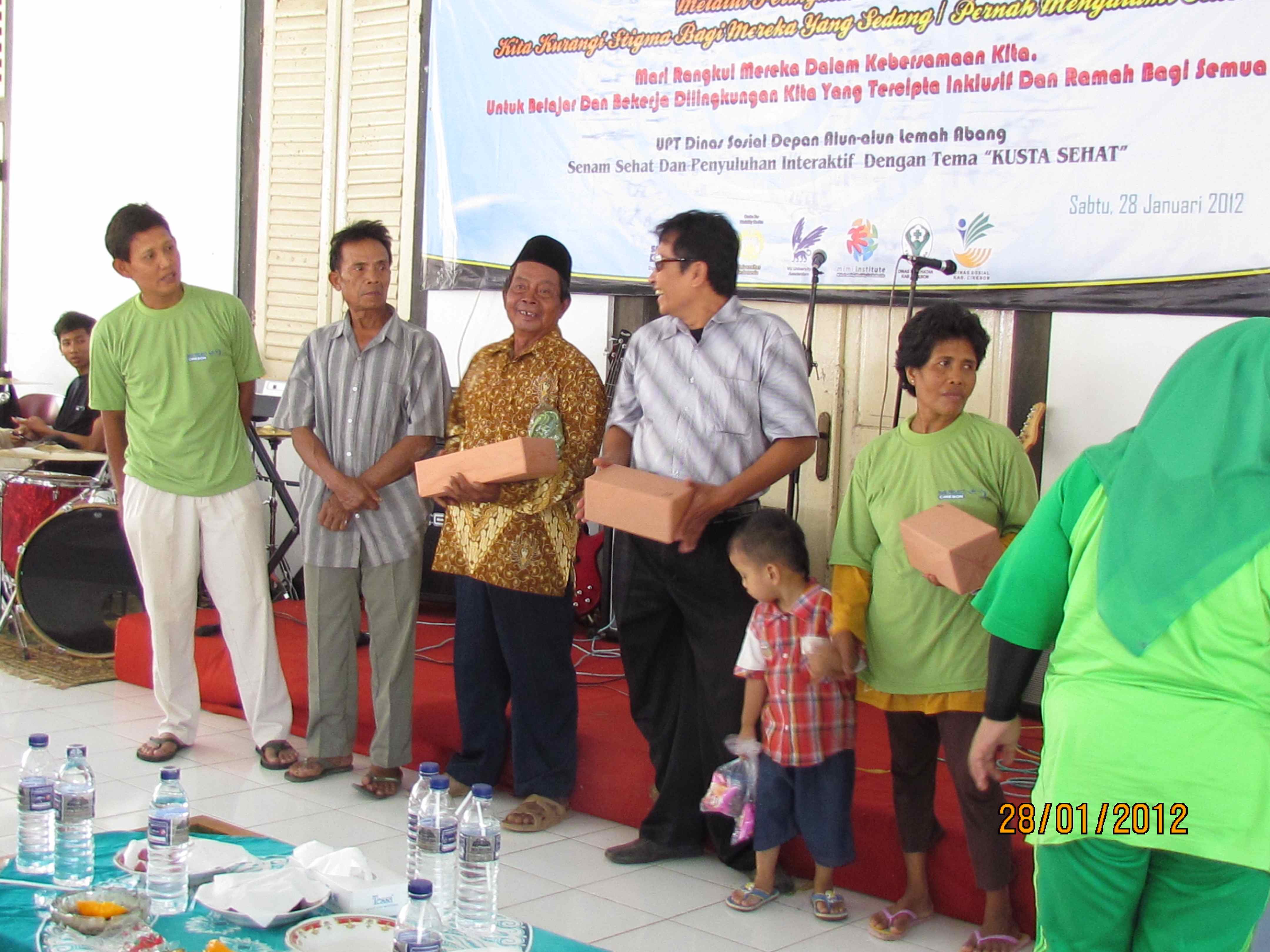The SARI Project studied the effectiveness of community-based stigma reduction interventions in an intervention study design. The intervention strategies tested were counselling, contact and socio-economic development. Final results of this project are available.

Project coordination
VU University Amsterdam, Athena Institute (The Netherlands), in close collaboration with Disability Studies Centre, Universitas Indonesia, Jakarta
Partners
- District Health Office, Cirebon (Indonesia)
- Disability Forum Cirebon, PPRBM Solo (Indonesia)
Final project summary
Many people are severely affected by health-related stigmatisation and social exclusion. People affected by leprosy, and even their family members, are often denied full social acceptance. In many cases, stigma has a direct impact on their economic situation. Apart from these direct effects on individuals and groups of people, stigma and discrimination form a major barrier for the effective implementation of leprosy and/or disability programmes. Awareness of the importance of health-related stigma is increasing and many projects have gained some experience with stigma reduction activities. However, much of this experience remains local, and the effectiveness and impact of these interventions is not known or measured.
The SARI Project aimed to test and evaluate three different intervention strategies to reduce stigma against persons affected by leprosy in Cirebon, Indonesia.The intervention strategies were: (1) counselling; (2) socio-economic development (SED); and (3) contact intervention. The project also focused on capacity building of people in Indonesia, particularly people affected and other disabled persons, through training, expert input, conference attendance and employment and PhD opportunities.
The SARI Project concluded that all three interventions resulted in a measurable reduction in leprosy-related stigma, both at community level and among people affected by leprosy. More specifically, the contact intervention used a combination of education, testimonies, comics and participatory videos and was highly effective in increasing knowledge about leprosy and reducing leprosy-related public stigma. Moreover, making participatory videos and comics was a highly empowering experience for persons affected by leprosy. Peer counselling and socioeconomic development improved social participation and quality of life among affected people in the intervention areas.Peer counselling was also found to be an effective way of engaging persons affected by leprosy in leprosy services.
The project furthermore led to the cultural validation of stigma scales and produced video guidelines on how to develop context specific stigma reduction interventions and a strengthened local disabled people organization. Three researchers (of whom two from Indonesia) obtained their PhD degree as part of this project.
Selected scientific publications
Ruth M. H. Peters, Wim van Brakel, Mimi Lusli et al.. The cultural validation of two scales to assess social stigma in leprosy. PLoS Negl Trop Dis, 2014; 8(11): e3274. doi:10.1371/journal.pntd.0003274.
Miranda-Galarza, B. et al..The power of personal knowledge: reflecting conscientization in lives of disabled people and people affected by leprosy. Journal of Knowledge Management for development, 2013; Vol 9 (2): 85-104.
Lusli, M., Peters, R.M.H., Zweekhorst,et al. Lay and peer counsellors to reduce leprosy-related stigma – lessons learnt in Cirebon, Indonesia. Leprosy Review, 2015; 86(1): 37-53.
Lusli, M., Peters, R.M.H., Zweekhorst, et al.. Dealing with Stigma: Experiences of Persons Affected by Disabilities and Leprosy. Biomed Research International, 2015: 1-9.
Peters, R.M.H., Lusli, M., Zweekhorst, et al.. Learning from a leprosy project in Cirebon, Indonesia: making mindsets explicit to facilitate the reduction of stigma. Development in Practice, 2015; 25(8):1105 - 1119.
Peters, R.M.H., Dadun, Zweekhorst, M.B.M. et al.. A cluster-randomized controlled intervention study to assess the effect of a contact intervention in reducing leprosy-related stigma in Indonesia. PLoS Neglected Tropical Diseases 9(10):e0004003.
Peters, R.M.H., Zweekhorst, M.B.M., van Brakel et al.. "People like me don’t make things like that”: Participatory video as a method for stigma-reduction in the field of leprosy. Global Public Health, 2016; 11(5-6):666-82.
Dadun, Peters RM, Van Brakel WH, et al.. Cultural validation of a new instrument to measure leprosy-related stigma: the SARI Stigma Scale. Leprosy review, 2017; 88(1):23-42.
Michgelsen J, Peters RM, Van Brakel WH et al.. The differences in leprosy-related stigma between 30 sub-districts in Cirebon District, Indonesia Leprosy review, 2018; 89(1):65-76.
Dadun D, Van Brakel WH, Peters RM, Lusli M, Zweekhorst MB, Bunders JG, et al. Impact of socio-economic development, contact and peer counselling on stigma against persons affected by leprosy in Cirebon, Indonesia – a randomised controlled trial. Leprosy review. 2017; 88(1): 2-22.
Co-funding partner
Sasakawa Memorial Health Foundation
